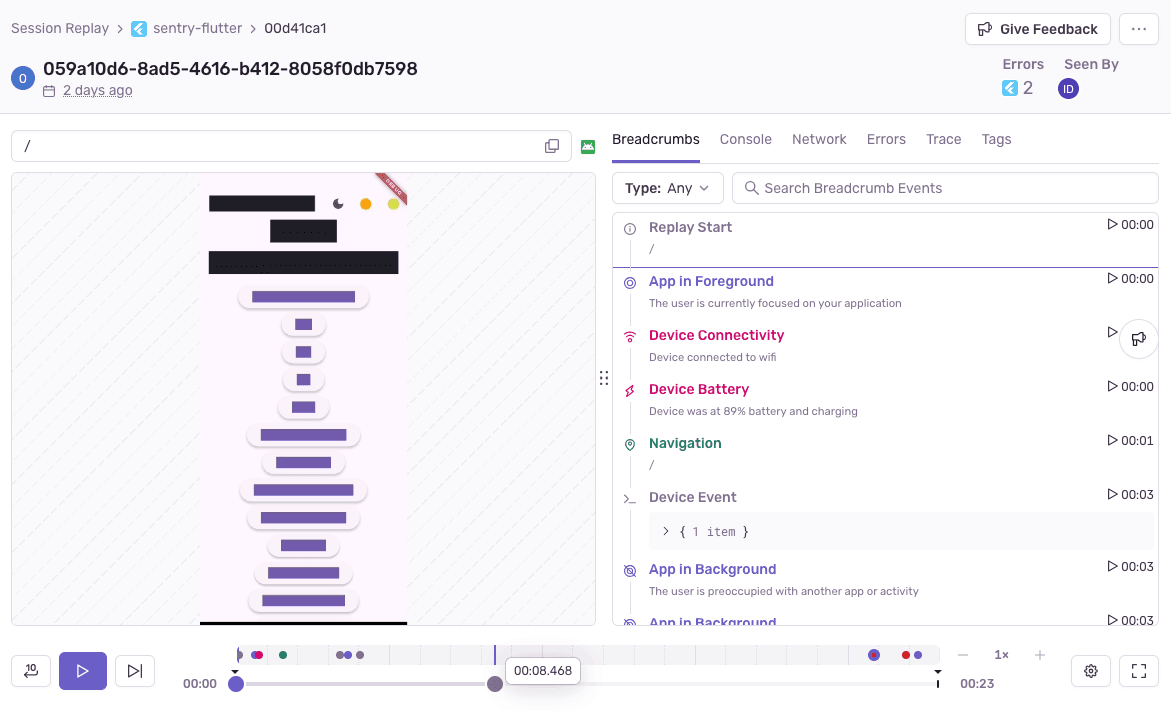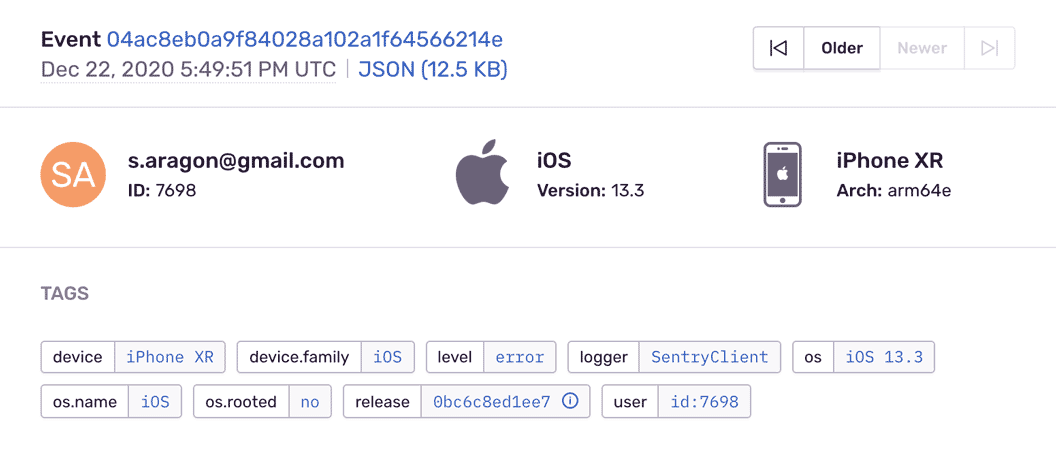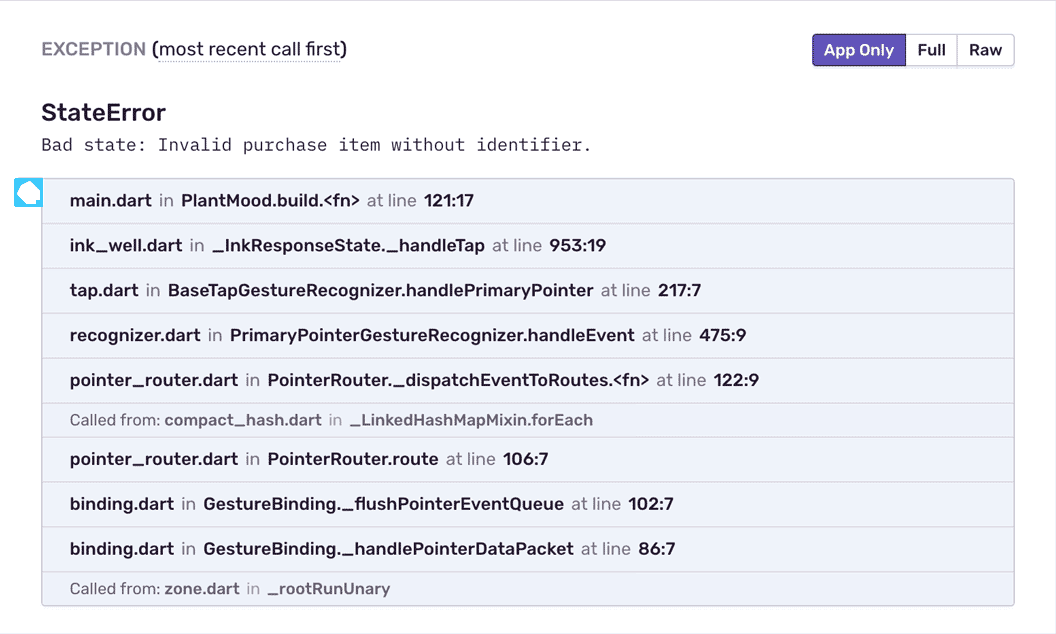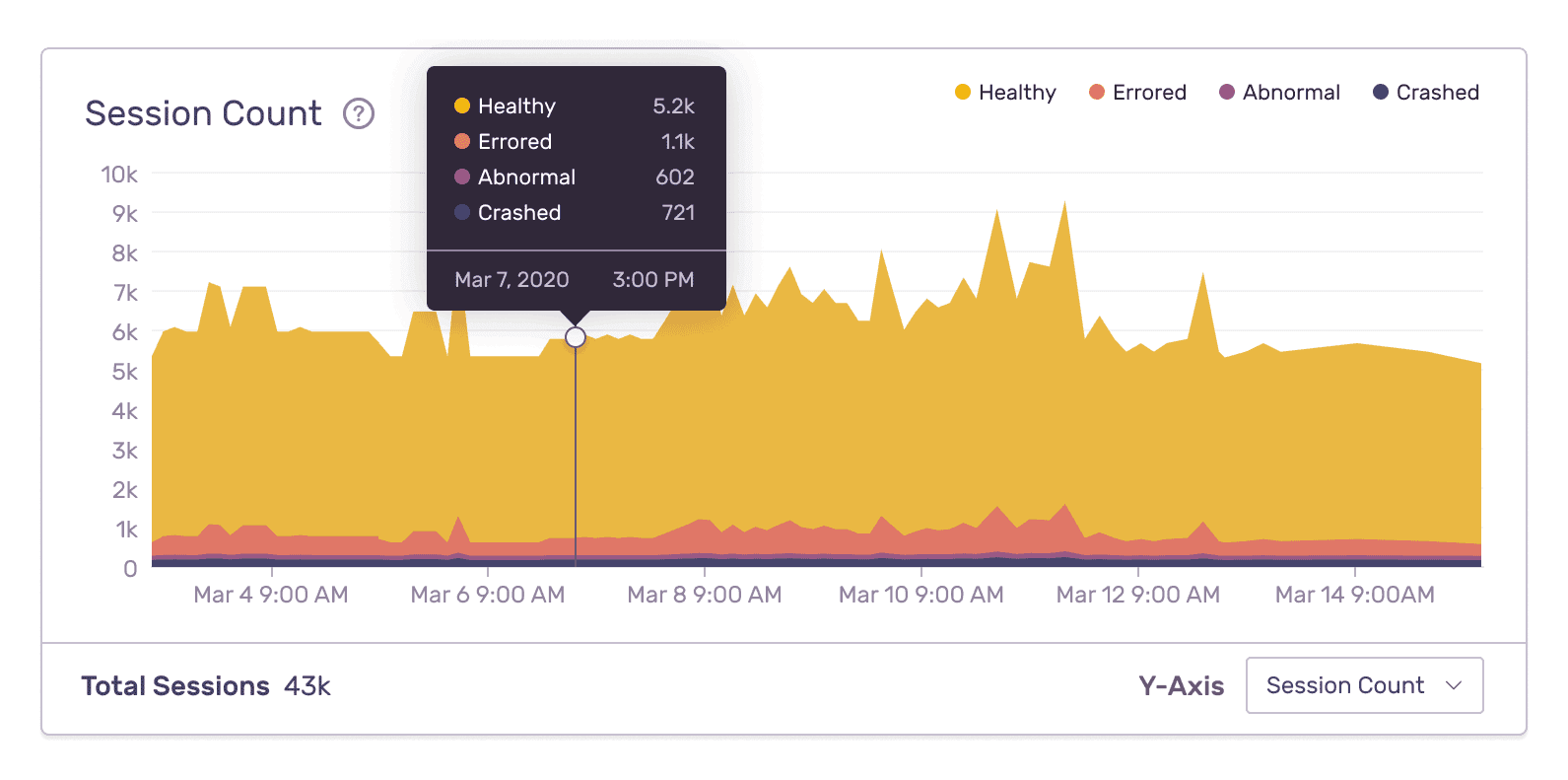
Flutter Error & Performance Monitoring with Sentry
Debug Flutter apps and prevent crashes across your entire stack. Flutter crash reporting and logging with a single view so you can diagnose, fix, and optimize the performance of your code with maximum efficiency.
Getting Started is Simple
Install with the Sentry wizard
brew install getsentry/tools/sentry-wizard && sentry-wizard -i flutter
Check our documentation for the latest instructions.
See all platforms
Session Replay
Get to the root cause of an issue faster by watching replays of real user sessions with best-in-class privacy controls. Understand when, where, and how an error is impacting your app without having to repro it yourself, talk to a customer, or expose sensitive data.

Flutter Application Monitoring
See Flutter app crash reports with details like filename and line number so you never have to guess or dig through an Flutter error log. Filter and group Flutter exceptions intuitively to eliminate noise. Monitor errors at scale without impacting throughput in production.

Complete Flutter Stack Traces
See an event trail to know what the app was doing before any error occurred. Record Flutter stack traces even when devices are offline or in airplane mode, then send errors as soon as connection is regained.

Flutter Crash Reporting
Improve workflow with a full view of releases so you can mark errors as resolved and prioritize live issues. Learn in which version a bug first appeared, merge duplicates, and know if things regress in a future release. Add commit data to automatically suggest an owner of each application error and instantly send deploy emails.
“Flutter provides customers with a fast path to building beautiful apps for multiple platforms from a single codebase. But one big challenge for mobile app developers is dealing with all the dependencies that can affect an application’s uptime and performance across multiple platforms. Thanks to Sentry’s Flutter support, developers now have access to a great suite of tools for monitoring and maintaining their app.”